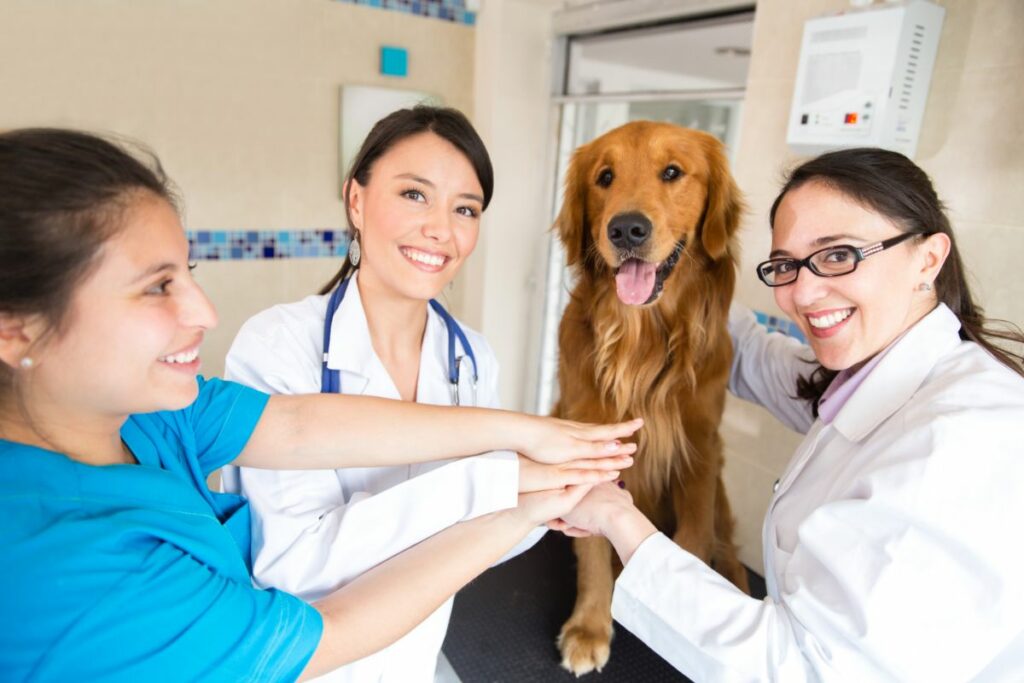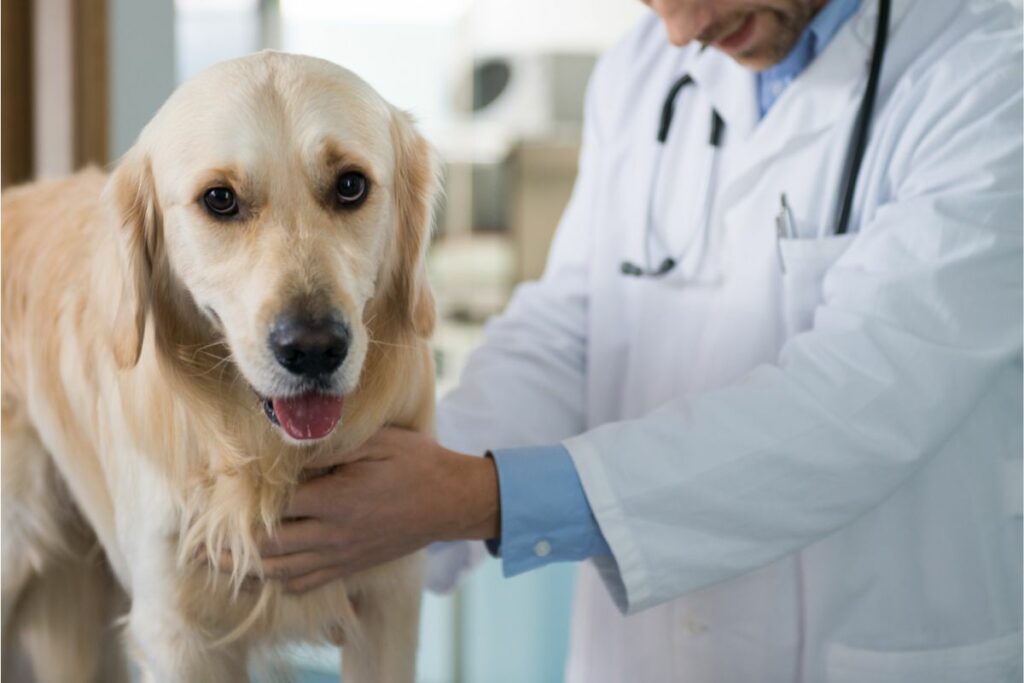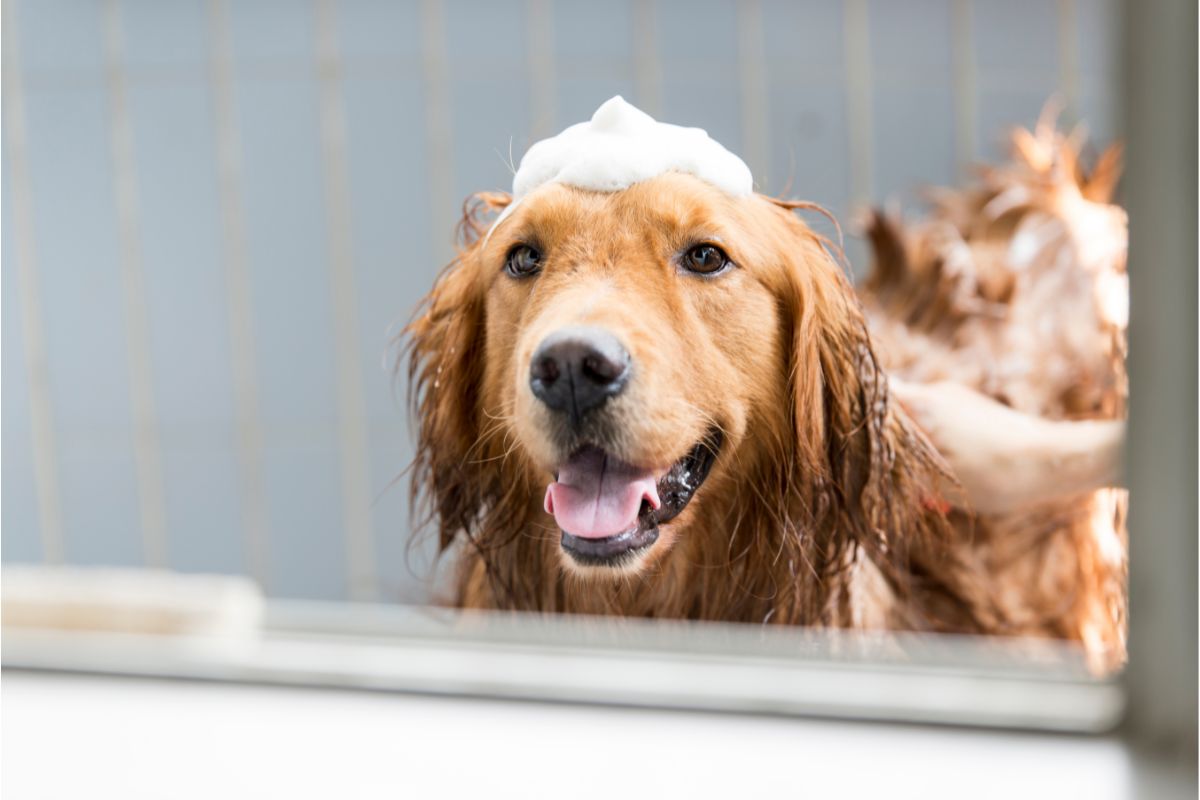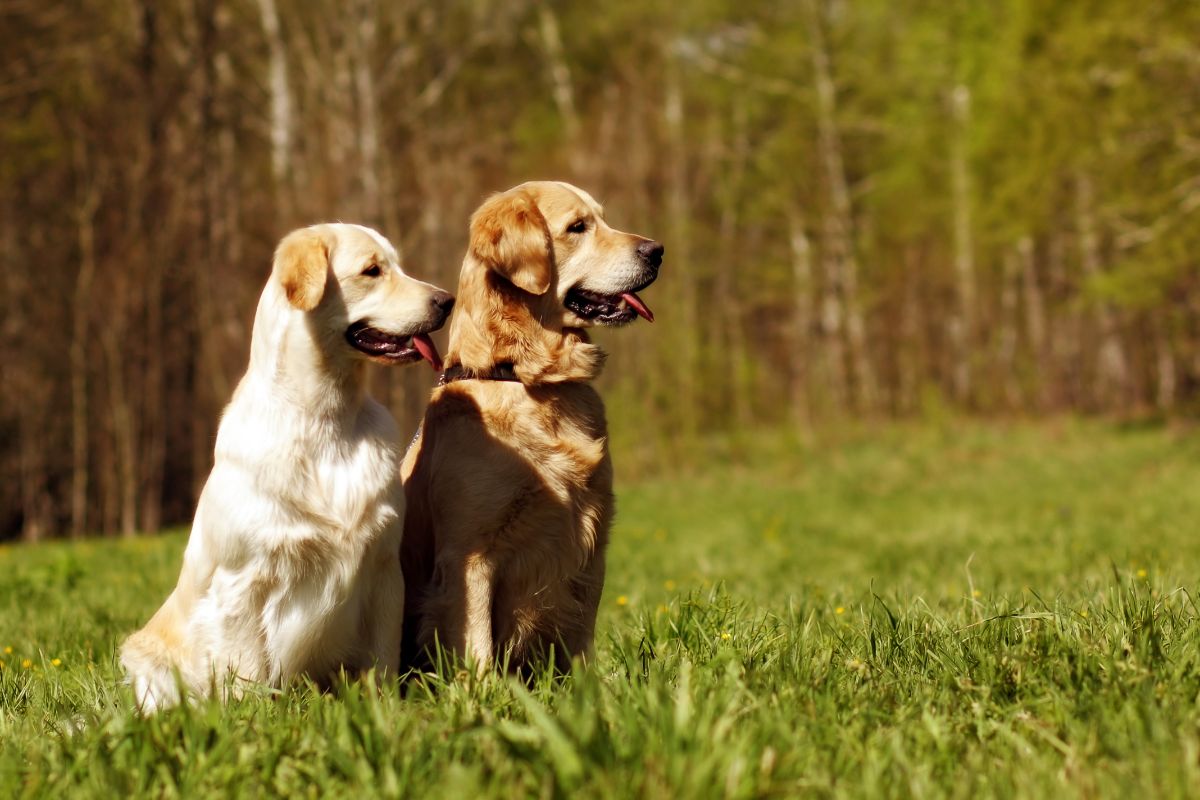There is a lot to consider once you get a Golden Retriever home. As well as getting the right food and toys and settling your pooch into the home, you need to think about their health requirements.
Apart from defleaing and worming, the other major consideration in these early days is arranging a shot schedule with your vet.
These vaccinations ensure that your dog is protected from common yet deadly diseases. If you want to keep your Golden Retriever healthy and prevent huge costs from treatment, then these vaccinations are essential.

In this guide, we will look at which shots your Golden Retriever puppy will require, as well as the non-core vaccinations that they may need.
We will also look at a vaccination schedule for your Golden Retriever Puppy and the shots they will need as an adult on an annual basis.
The Recommended Shots For Your Golden Retriever Puppy
The most vital shots that your Golden Retriever will get are the core vaccines – these are required for every puppy from an early age.
These protect your pooch against fatal diseases that largely prove to be the most troublesome and expensive to treat.
Core vaccines also combat zoonotic diseases, which are transmissible to humans.
Not only will these core vaccines prevent your Golden Retriever from getting seriously ill, but also prevent anyone nearby from falling ill with those same diseases.
The fatal diseases that core vaccines immunize against include:
- Rabies
- Canine Distemper
- Canine Hepatitis
- Canine Parainfluenza; and
- Canine Parvovirus.
After a schedule of core vaccines has been delivered, you can expect conclusively fewer vet trips for additional shots.
However, you will be expected to keep an ongoing record of the shots your Golden Retriever has had.
Should you move to another state, you will be expected to ask your local vet if the dog needs any more vaccinations that are specific to the area, which may be considered non-core vaccines elsewhere.
Those final four diseases (Distemper, Hepatitis, Parainfluenza, and Parvovirus) should all be included in the cluster DHPP shot, though this is also known as DA2PP or DAPP.
The Non-Core Vaccines Your Golden Retriever May Need
There are further vaccines that your vet may decide are required, as it is best to be safe rather than sorry.
These non-core vaccines may depend on your location and how social your Golden Retriever is.
Though they may not be essential for every dog, they are typically exceedingly beneficial. The more social your Golden Retriever, the more you should consider additional vaccines.
Personally, we’ve always opted for the core and non-core vaccines for our furbabies as the thought of them getting ill from something that could be prevented is unbearable.
These vaccines should reduce the risk and spread of highly contagious dog diseases. Just like core vaccines, these will be administered by a licensed veterinary professional.
They can be known as lifestyle vaccines as they can depend on where you live and the risk of disease in the area. Other factors include their overall health and whether your dog socializes in dog parks, doggy daycare, and grooming facilities.
Non-core vaccines include those for:
- Lyme Disease
- Bordetella (which can lead to Kennel Cough)
- Canine Influenza (known as Dog Flu) and
- Leptospirosis.

A Vaccination Schedule For Your Golden Retriever Puppy
At around the five or six-week point, you should discuss an immunization schedule for your puppy with your vet – they will be able to recommend the best time to start.
There may still be some natural antibodies lingering in their system from nursing at their mom’s teat, yet your Golden Retriever puppy will soon need a boost.
Between six and eight weeks, your puppy can expect their first vaccinations, which are typically for Canine Distemper and Parvovirus. At this point, you could also expect a vaccination for Bordetella.
By the ten to 12-week stage, a cluster vaccine known as DHPP is given, which stands for Distemper, Hepatitis (also known as Adenovirus), Parainfluenza, and Parvovirus.
You may also be offered vaccinations for Leptospirosis, Canine Influenza, and even Lyme Disease, depending on your puppy’s lifestyle and the area you live in.
At 14 to 16 weeks, the first Rabies shot comes in, as well as another DHPP vaccine. Again, vaccines for Leptospirosis, Canine Influenza, and Lyme Disease could be offered at this point.
Annual Shots For Your Adult Golden Retriever
The shots do not end there, as you can look forward to a trip to the vet clinic on an annual basis.
A vaccine renewal for Rabies may depend on the prevalent risk and specific state laws. That could mean an annual booster shot or one delivered every three years.
You can also expect a further booster to the cluster DHPP vaccine to protect against those four central dog diseases.
Below, we have recapped the core and non-core shots and provided a little more information on each of them.
Core Vaccines
To qualify as a core vaccine, the disease it aims to protect against is typically highly contagious and may not have a known cure. You can expect a rabies shot to be given separately and on an ongoing basis.
However, cluster vaccinations known as DHPP, DA2PP, or DAPP can deliver multiple vaccinations at once.
Rabies
Rabies is a legally required vaccine, and there is a good reason why.
As a neurologic disease, it can prove fatal for domestic pets and people. The disease still causes deaths every year, and with its zoonotic status, meaning it can be transmitted to humans and other animals, there can be legal repercussions if you do not keep your Golden Retriever up to date with their Rabies vaccines.
Canine Distemper
Canine Distemper is considered a core vaccine, largely due to how contagious it is.
The virus spreads via respiratory droplets that hang in the air, though it can be transmitted through shared food and water bowls.
Symptoms include seizures, diarrhea, vomiting, coughing, paralysis, and, in extreme cases, death.
Canine Hepatitis
This is a canine-specific form of Hepatitis, yet it will affect your Golden Retriever in a similar way as it would humans.
That includes an attack on the spleen, eyes, lungs, kidneys, and liver. The symptoms can include fever and congestion, then range to stomach swelling, vomiting, and severe pain in the liver.
Until a cure can be found for the condition, it will remain as a core vaccine.
Canine Parainfluenza
Once contracted, Canine Parainfluenza can result in Bordetella, which can then lead to Kennel Cough. The dog’s upper airways will become inflamed, resulting in incredible pain for your Golden Retriever to endure.
This can lead to more severe respiratory diseases and even pneumonia.
Canine Parvovirus
Another core vaccine is Canine Parvovirus as there is no known cure. The condition attacks a dog’s gastrointestinal tract, leading to a fever, bloody diarrhea, and vomiting. Due to the expectation of extreme dehydration, Parvovirus can lead to a fatality in between 48 and 72 hours.
Non-Core Vaccines
The following vaccines are considered non-core across the country. In certain areas, you can expect them to be compulsory due to the increased risk.
This could be due to the prevalence of the disease in the area combined with the lifestyle and sociability of your Golden Retriever.
Lyme Disease
The Lyme Disease vaccine may be considered core if you reside in certain areas like the Pacific Coast, Northern Midwest, and the Northeast. This is where the tick-borne disease is considered endemic, so should be considered if you are moving or traveling to the area.
Bordetella
Bordetella is considered highly serious as it is a truly infectious form of bronchitis, which can then lead to Kennel Cough. It may be listed as a non-core vaccination, yet it is important due to the severity of the side effects.
These include a loss of appetite, gagging, retching, and a dry, harsh cough. The vaccination can be offered in different ways, such as a regular injection or a nasal spray.
Canine Influenza (Dog Flu)
Two known strains of the virus cause Canine Influenza: H2N2 and H3N8. Whenever there is an outbreak, it can come with new flu strains, so you can expect the vaccine to be offered if one occurs in your area.
The offer could also depend on your Golden Retriever’s lifestyle, including whether they socialize with other dogs in daycare, boarding, or grooming facilities.
Leptospirosis
Though Leptospirosis is not universally considered a core vaccination, it will be in certain locations. That’s largely due to how serious the bacterial disease is, as it can result in severe liver or kidney failure in both dogs and humans.
This is another zoonotic disease, and it can be hard to detect due to many dogs not showing outward symptoms.
The Final Woof
It’s never nice taking your Golden to the vet – especially when they turn on those sad puppy dog eyes – but regular shots are vital.
As soon as your puppy is old enough, chat to your vet about the vaccinations – both core and non-core – that might be needed and discuss a suitable schedule.
Keep up your annual vet visits so that your pooch is immunized from harmful diseases.
And don’t forget to give them a big treat for being so brave at the vet’s office!








